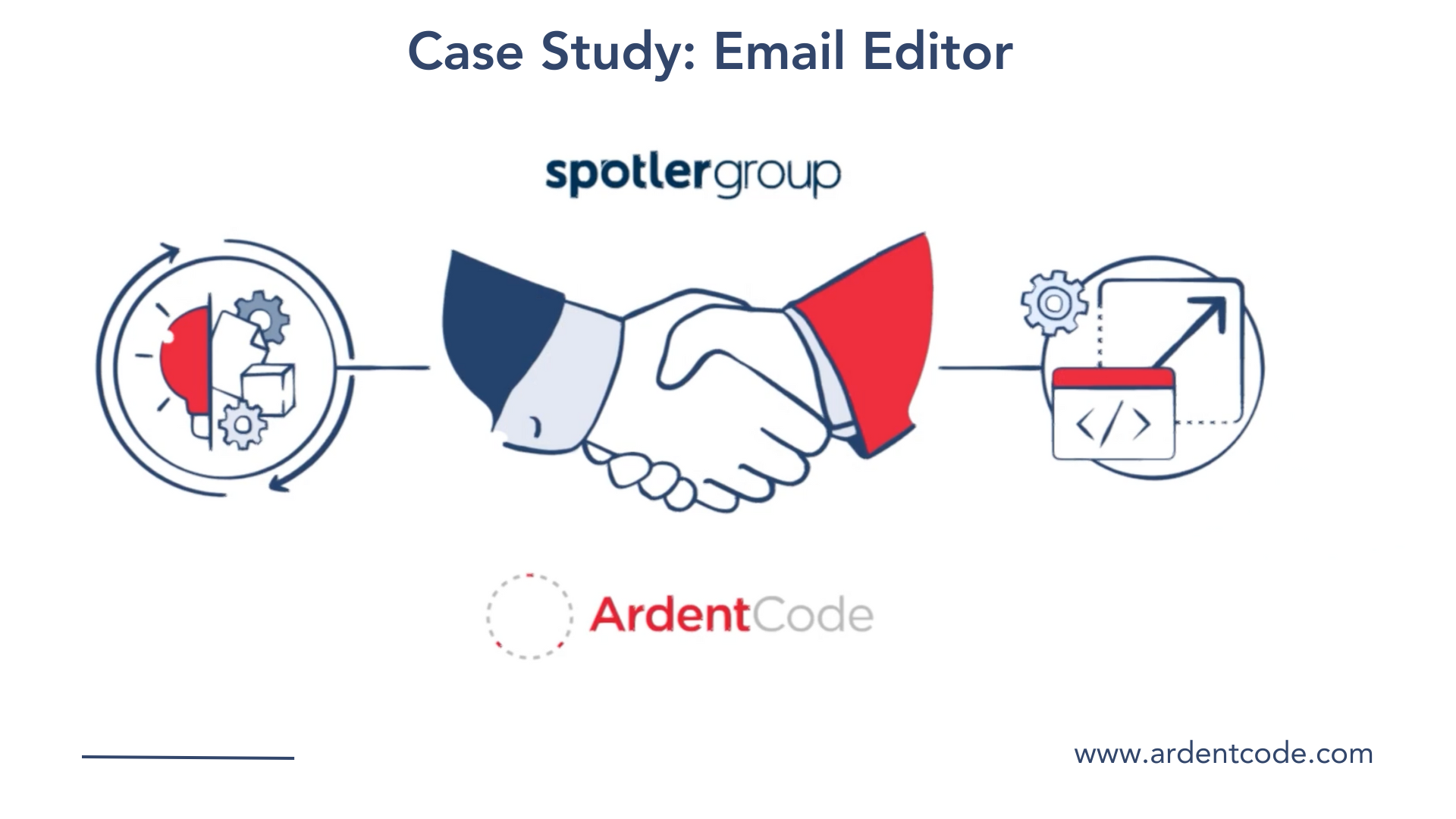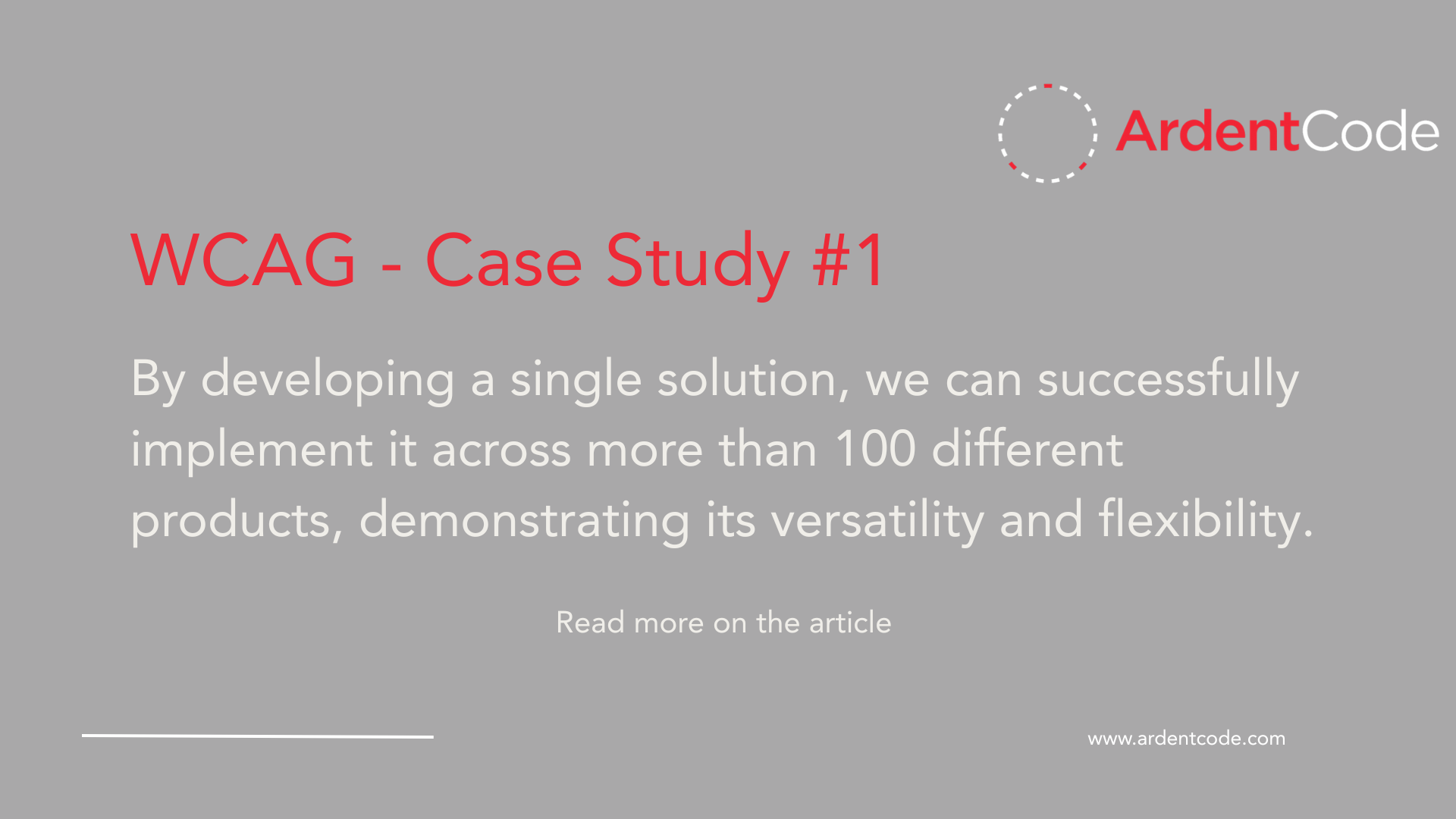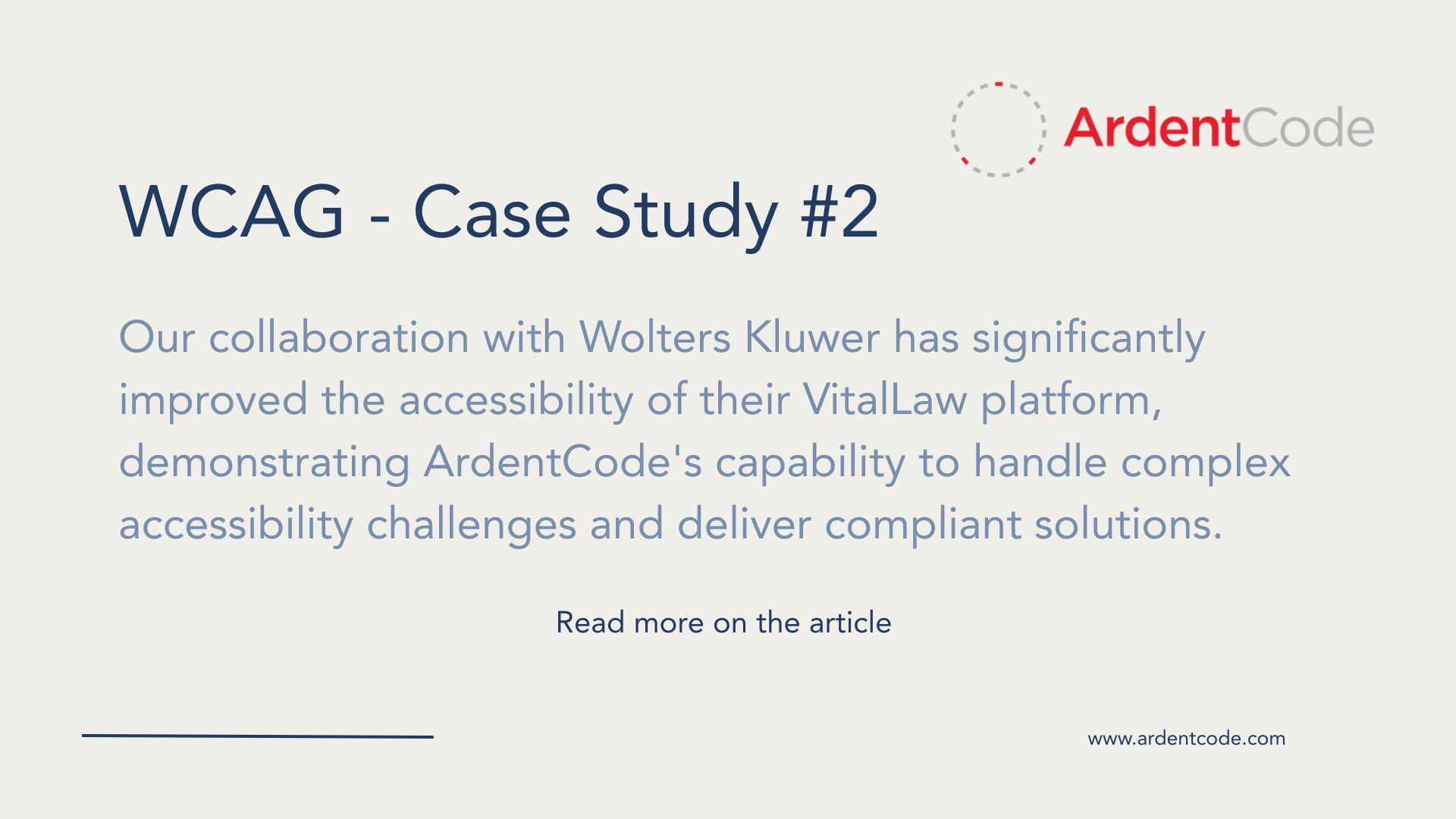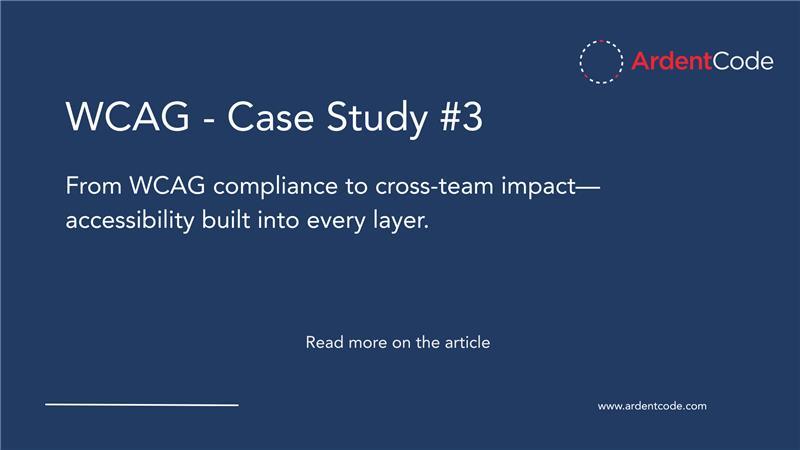Case Study
Our case studies showcase how we solve complex challenges through innovation and close partnership. Explore how we deliver measurable results, optimize processes, and help our clients accelerate their digital evolution.

Success Stories in Action
Discover how our approach transformed challenges into triumphs for our customers:
Email Editor
Spotler Group partnered with ArdentCode to develop a scalable, user-friendly email editor that unified multiple products under a single solution, reduced maintenance costs, and enhanced brand consistency across the group’s applications.


DevOps
ArdentCode collaborated with Wolters Kluwer to create a cloud-agnostic SaaS solution that streamlines Continuous Deployment across business units, enabling faster, more reliable releases, reducing costs, and improving collaboration through automated testing, monitoring, and simplified deployment processes.
VitalLaw Deployment Evolution
ArdentCode partnered with Wolters Kluwer to implement DevOps practices for the VitalLaw platform, accelerating deployment cycles from two months to two weeks, enabling daily releases, improving collaboration across global teams, and enhancing stability, security, and agility in the development process.


WCAG #1 – solutions with amazing scalability
Discover the foundation behind over 100 Wolters Kluwer products — scalable, accessibility-first components built for performance, compliance, and user trust. The design system meets global accessibility standards, including WCAG AA, ADA, and EAA, from day one. Backed by UX expertise and rigorous testing, we were engaged to turn inclusie design into a seamless, efficient reality. Explore how we make every interaction count.
WCAG #2 – 994 accessibility fixes, one compliant platform
ArdentCode partnered with Wolters Kluwer to ensure VitalLaw meets WCAG 2.2 Level AA accessibility standards, addressing nearly 1,000 issues identified by an external audit. Our team tackled everything from keyboard navigation to resolve external dependencies. This comprehensive effort resulted in a more accessible, compliant, and user-friendly platform.


A great cooperation – what made Fusion more inclusive, sustainable, and ready for the future?
A fully accessible research product, designed to replace a legacy solution for people who are blind or have low vision and integrated seamlessly into the Fusion ecosystem. Built to meet WCAG 2.1 AA standards, the solution improves accessibility across multiple products—creating a future-proof foundation for inclusive design.